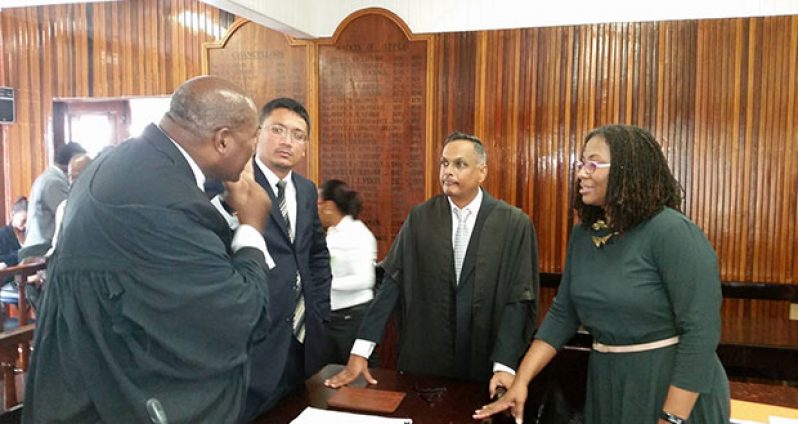THE Society Against Sexual Orientation Discrimination (SASOD), Guyana Trans United (GTU) and the University of the West Indies Faculties of Law Rights Advocacy Project (U-RAP) have welcomed the setting down of the McEwan and Others appeal, related to the cross-dressing law in Guyana, for a full hearing on October 17, 2016.The appeal was fixed for hearing on Wednesday at the Court of Appeal. Gulliver McEwan, the first-named appellant, and representatives of SASOD and GTU were present in a completely full courtroom.
The appellants filed their skeleton arguments in accordance with the rules of the court, but the arguments of the State are yet to be filed.
The Court of Appeal noted that the arguments filed by counsel for the appellants were extensive and that it wished some time to fully review them and to receive the arguments from the State.
In early September, 2013, then Chief Justice Ian Chang ruled that cross-dressing by men is not a crime as long as they did not do so for an “improper purpose.” Cross-dressers believed that this did not stop them from being arrested or harassed by the police, as the jdid not define what “improper purpose” meant.
As a result, the cross-dressers, along with SASOD, which advocates for the rights of sexual minority groups, appealed the chief justice’s ruling.
The transgender women had petitioned the High Court to strike down laws that left them open to arrest, following a police crackdown the year before on male-to-female cross-dressers.
During the brief hearing at the Court of Appeal Wednesday, Chancellor of the Judiciary Carl Singh raised a question as to the procedural validity of SASOD being on the rubric of the appeal, since the organisation was struck out as a party at first instance. Mr. Nigel Hughes, on behalf of the appellants, responded that the relevant documents would be amended, but added that in those circumstances, a formal application would be made for SASOD to be joined in the appeal.
Mr Hughes stressed that SASOD had an important interest in the appeal in light of the decision of the chief justice to strike it out as an applicant, and given larger questions at stake on the role that organisations can play in public-interest litigation.
Asked to comment on this matter at a post-hearing debriefing session held at SASOD’s office later in the day, the first-named litigant and Executive Director of GTU, Gulliver McEwan, stressed that excluding civil society organisations (CSOs) such as SASOD and GTU would inhibit marginalised persons from being able to access justice.
“If civil society groups are not included in the case, then how can we as a community be represented in something that affects us all?” McEwan questioned. “This case doesn’t just affect the four individual litigants, it affects us all,” McEwan said, while emphasising that CSOs also give the case weight and credence. “For trans-people it has far-reaching implications, not to mention the entire LGBT community.”
Managing Director of SASOD, Joel Simpson, posited that Caribbean courts have taken a very restrictive approach to the standing of organisations, which he finds untenable.
“The Guyana Constitution through the 2003 reforms has given the organisations the right to be heard on behalf of the people they serve.
“This case gives the court an opportunity to give life to this constitutional right,” Simpson stated.
He added that this is particularly important for advancing human rights in Guyana where individuals are often stigmatized, re-victimized and face amplified risks to their safety and security when challenging the State to respect the rights of a minority group.
“It makes no sense articulating rights in the Constitution if organisations are shut out from accessing them ‘acting on behalf of its members’ as Article 154 of the Guyana Constitution provides,” Simpson concluded.




.png)









